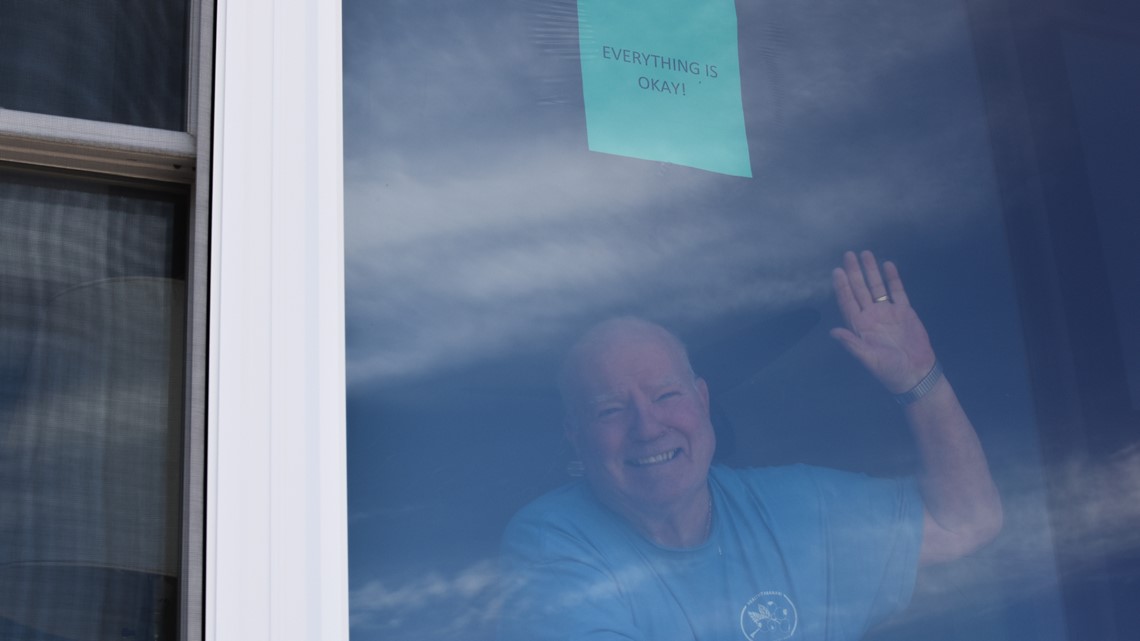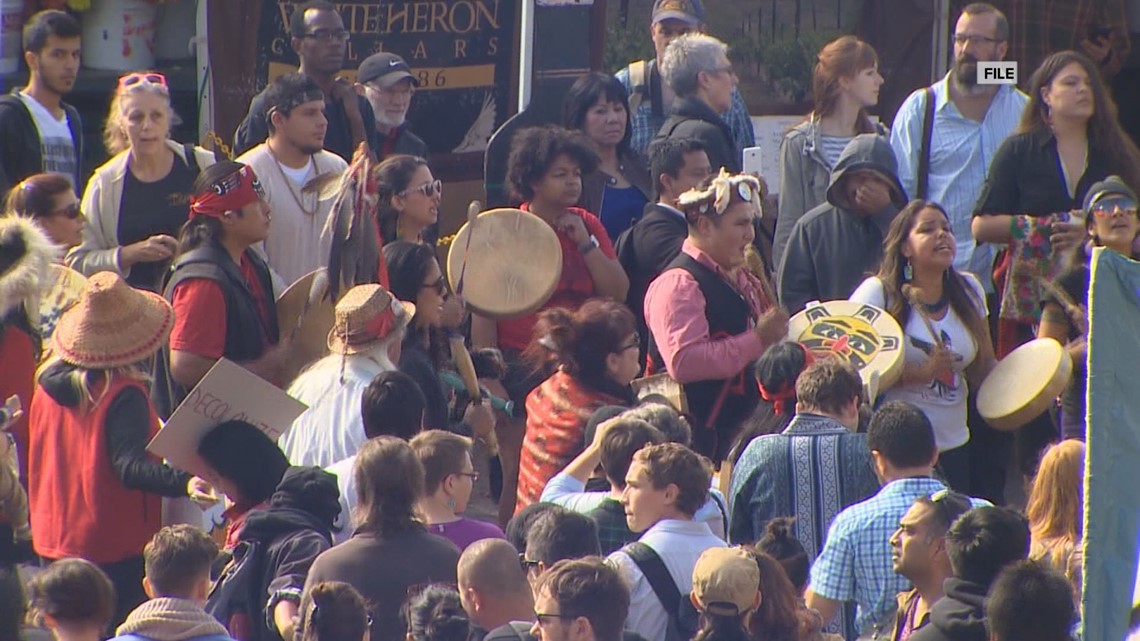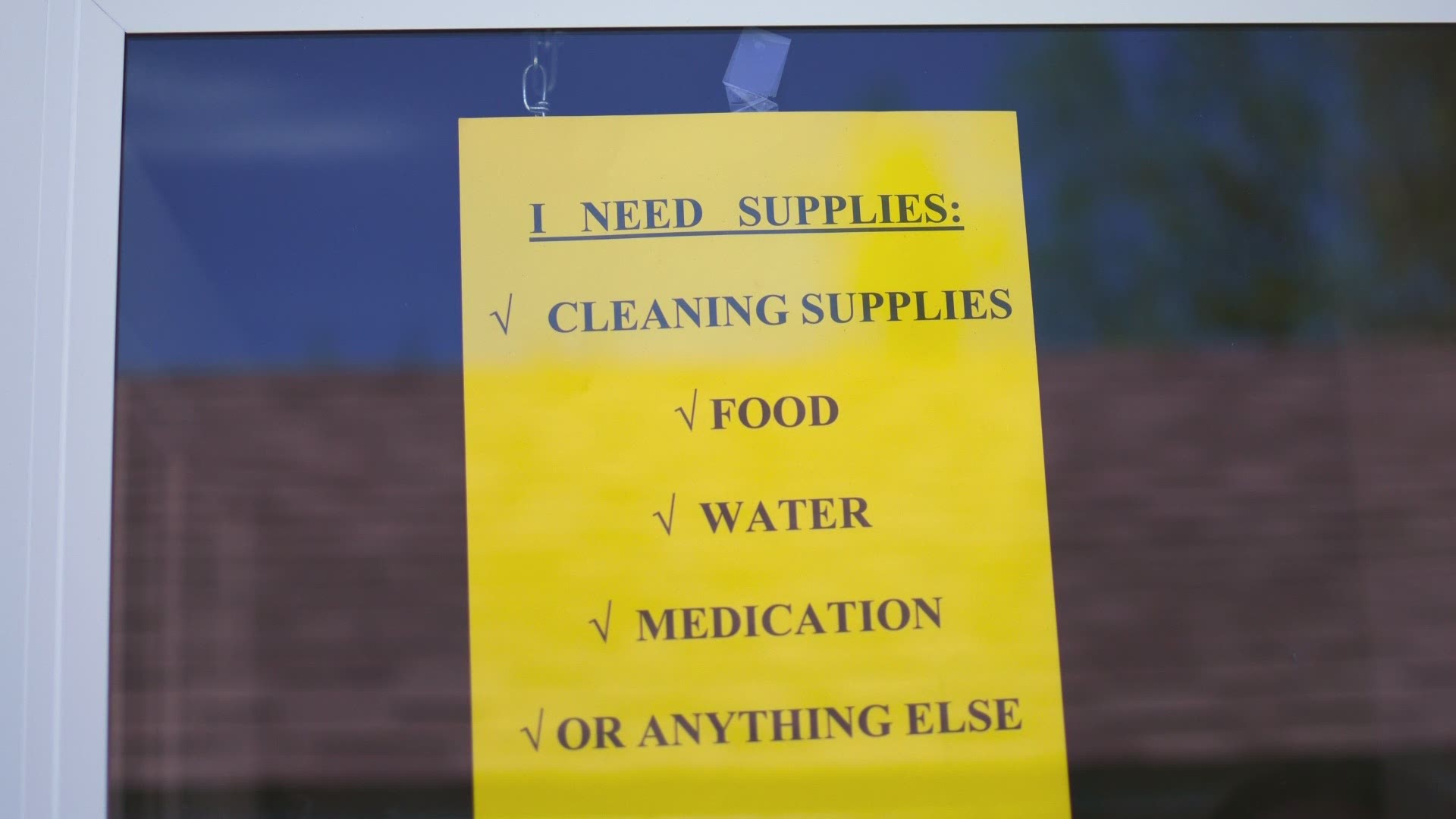BANGOR, Maine — Last March was a unique time for Mainers as the first cases of COVID-19 were being reported in the state. Some people questioned the lock-downs, mandates, and calls to stay socially distant. But one group of Mainers has seen how things play out when a pandemic comes to our shores.
“The history of pandemics for Indigenous people have not created the best outcomes," Lisa Sockabasin, the Director of Wabanaki Public Health said. "And we wanted to change that narrative," she added.
Four tribes make up the Wabanaki, the Maliseet, Micmac, Penobscot, and Passamaquoddy. Clarissa Sabattis is the Chief of the Maliseet and said tribal offices were closed around March 16th last year and preparations were made then to weather this pandemic.
Ralph Cammack is the Infectious Disease Division Manager at Wabanaki Pubic Health and Wellness. He said the tribes did a great job at reacting quickly to allow his team to help the community.
“[We made] sure people have those [Personal Protective Equipment], [we made] sure they have what they need to be safe," he added.
Keeping people safe and making sure they had the basic needs became priority number one for Cheif Sabattis, Sockabasin, and Cammack. So, Wabanaki Public Health and Wellness and its federal, state, and local partners established a series of programs to assist the Indigenous community in Maine.
“We offer language classes, we offer other classes to help people online connect to each other," Sockabasin said.
The Wabanaki culture is defined by large gatherings and celebrations, but Cammack said those events needed to be altered.
“We’re doing cultural practices but doing it in a very safe and appropriate way based on those guidelines," he said.
The colored-paper project was another initiative used to help the Wabanaki. Adopted from an Indeneginous tribe in Canada, the idea is simple. Each person in the community has different colored pieces of paper that can be posted from their homes that are visible from the road. Each color has a different meaning.
Red paper means a family or individual needs urgent care. The Wabanaki partnered with a local ambulance and EMT service to handle those emergencies. A yellow piece of paper is a call for supplies, whether it be masks, food, or water.


Another colored piece of paper the Wabanaki can display from their windows is blue. The blue paper is a call for some type of connection, whether it be a wave from the street or a phone call.
Food insecurity is always an issue within Maine's indigenous population, but that need is at an all-time high during this pandemic.
Cheif Sabattis said her tribe created a food pantry and a community garden. Young men in the community also helped launch an internship program, teaching others how to hunt or grow their own food.
"And right now we’re talking about doing online cooking classes," Chief Sabattis added. "I think that we’re seeing something wonderful happen out of this pandemic.”
The Wabanaki Literacy & Love and clean water projects also helped address needs for the community. Through Literacy & Love, community members were able to get access to books from children's reads to novels.


The clean water project helped provide the basic need of clean drinking water to many folks in the community.
The projects and programs put in place to help the Wabanaki stay safe and healthy are working. According to the latest information from the Maine Center for Disease Control and Prevention, Maine's Ingenious population accounts for fewer than 100 cases of COVID-19, even with a recent rise in case numbers.
“We’ve seen those cases follow similar trends, not only in the state but in the country," Cammack said.
Like every community, it's been a tough ten months for the Wabanaki. Cultural celebrations were adapted and folks were kept away from friends and family.
But Sockabasin said the Wabanaki's natural resiliency will get them through the pandemic and the tribes will be stronger because of it.

